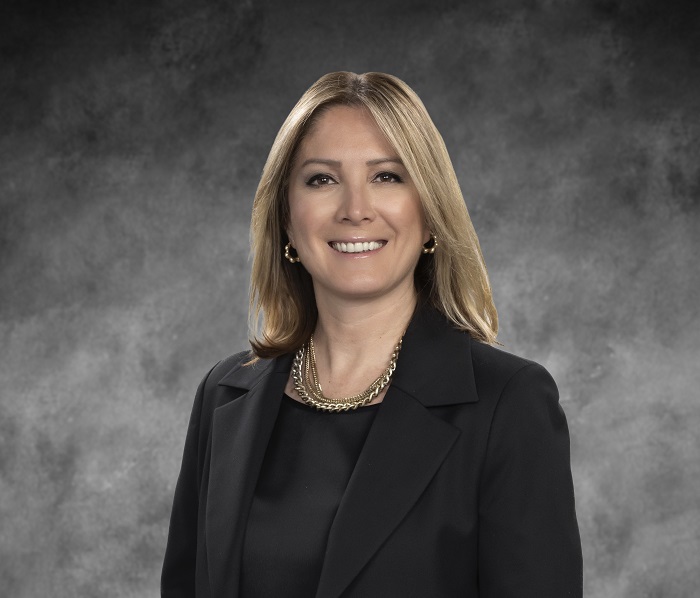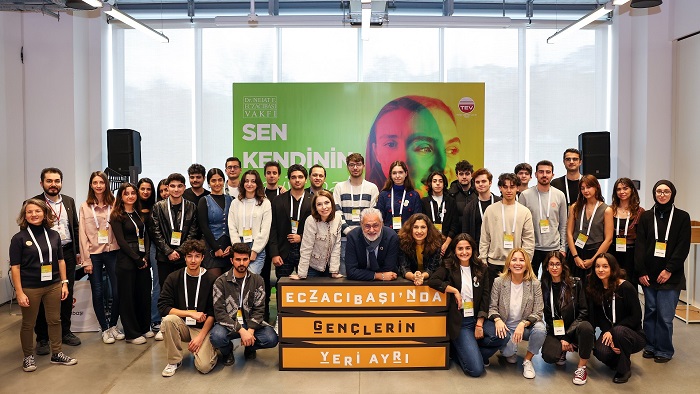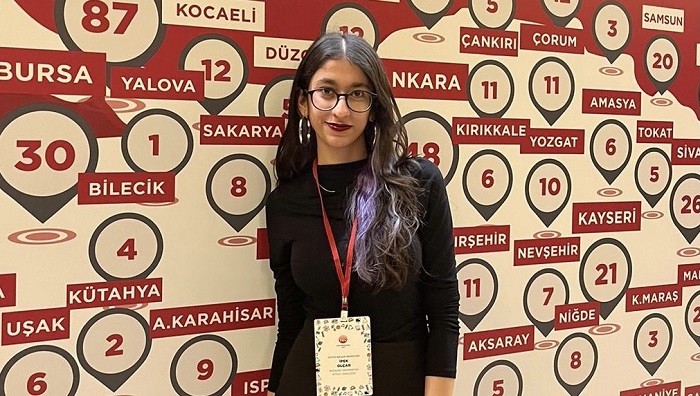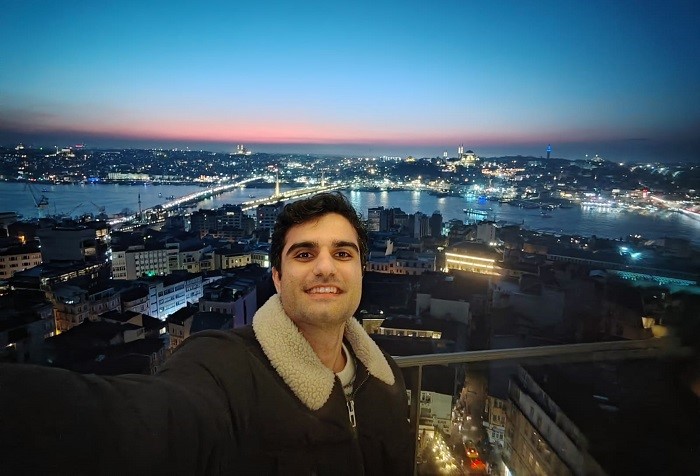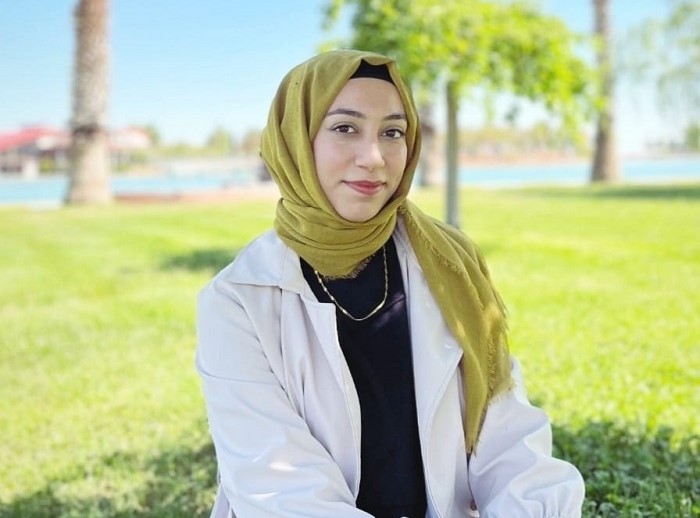Today’s youth aren’t only attending classes and preparing for exams, they’re also coping with concerns about the future, looking for new ways to improve themselves and participate in social life, and searching for opportunities to realize their dreams. Support mechanisms for young people shouldn’t be limited to financial aid; contributing to their well-being is also critical.
With the support of the Eczacıbaşı Group, the Dr. Nejat F. Eczacıbaşı Scholarships for Higher Learning Program of the Dr. Nejat F. Eczacıbaşı Foundation aims to provide wholistic support to students during their educational journey. In addition to financial aid, the Foundation’s scholarships provide privileged access to culture, art and sports, as well as career development opportunities and mentorship. This way, young people not only receive financial aid but also opportunities for emotional and social growth. This impact-driven approach differs from conventional scholarship programs and helps young people shape their tomorrows starting in the present.
So, who are the real people behind the clichés about Generation Z? What dreams do they have and what obstacles do they struggle with? What do they need to feel satisfied?
To explore these questions, Eczacıbaşı Life Blog spoke with Banu Taşkın, General Manager of the Turkish Education Foundation (TEV), İlkay Yıldırım Akalın, Secretary General of the Dr. Nejat F. Eczacıbaşı Foundation, and Dr. Nejat F. Eczacıbaşı Education Grant Program scholarship holders İpek Olçar, Fakihe Akıllı, and Yaşar Erman Demir.
When we talk about young people in Türkiye, what kind of group should we imagine? How homogeneous is this population?
As a foundation that supports the educational journey of more than 20,000 students from all 81 provinces of Türkiye, we encounter a meaningful reflection of our country’s social fabric while striving to remove the barriers to high-quality education. Our scholarship ecosystem is virtually an economic, social, and cultural miniature of Türkiye. More simply, the TEV network of scholarship holders is a representative demographic sample of our country. It also reveals the different levels of access young people have to resources. Young people in rural areas generally have more limited access to educational infrastructure, technology, and social opportunities than those living in big cities, where there’s a greater range of extracurricular activities, opportunities for foreign language education, and digital tools. Female students face societal barriers in continuing their education, while male students are subject to different expectations. For students with disabilities, accessibility remains one of the most pressing issues.
Depending on their socioeconomic conditions, young people’s educational journeys differ significantly. Some students have an urgent need for financial support to continue their studies, while others need guidance, mentoring, or psychosocial support. This diversity turns the TEV scholarship ecosystem into more than a financial support mechanism; it becomes a social tool for balancing young people’s access to resources. In short, the TEV scholarship holder network both reveals inequalities and offers concrete interventions to reduce them.
Our scholarship holders reflect the different sociocultural layers of Türkiye. Through our network, we see how possible and valuable it is to live together with differences. This experience also gives us the opportunity to transform our perspective on youth. It reminds us to consider youth not only as a biological stage or transition period from childhood to adulthood but also as a social category. This perspective helps us establish a healthier balance between academic achievement and need in our scholarship policies and better identify the real needs of young people.
Looking at youth through a more sociological lens is an approach that international institutions have also gradually embraced. In Türkiye, what it means to be young differs significantly between rural and urban areas. These differences affect perceptions of when youth begins and ends as well as society’s approach to young people. For this reason, I believe it’s far more meaningful to view youth as a relational and contextual social phenomenon rather than as a target audience or marketing term.
Beyond generalizations about Generation Z, how do university students feel today? What common issues do they face and what do they need? When looking at micro segments, what differences emerge?
Youth is a multi-layered social community that takes different forms in different societies and even from one region to another in the same country. While young people may face similar challenges such as unemployment or housing, their responses, priorities, and solutions vary depending on where they live and the social context they are part of.
For youth policies to be effective, it’s crucial that we correctly define and reveal the core issues young people encounter in their daily lives. We now see very clearly that young people need to be supported not just with scholarships or basic economic aid but rather a more wholistic approach. At a deeper level, there’s a sense of loneliness and lack of direction. We believe young people need space to breathe, express themselves, dream, and grow. As we saw in the Impact Analysis we conducted last year, students who receive scholarships can work fewer hours than those who don’t, which allows them to focus on their education. They also gain a sense of financial independence, which creates room for them to be themselves. Our Foundation adopts this holistic approach, providing scholarship holders with diverse opportunities to discover their own potential.
At TEV, we also work to make these realities more visible to the general public. Through projects such as “Whose Bag Is This?” and “This Is All I Can Afford,” we show that young people struggle with different challenges not just in education but in all areas of life. Our goal is to raise public awareness and encourage society to take responsibility.
In conclusion, youth policies shouldn’t be limited to education or employment data. They should provide inclusive solutions that address these multi-layered challenges.
What initiatives should be taken to keep young people engaged in education and employment? What should be the priorities of youth policies?
In today’s world, you can’t understand youth in terms of age or life stages. A wide range of structural issues, from the environmental crisis to economic inequality, shape young people’s lives. For young women in particular, education has the potential to drive profound transformations within society. That’s why it’s so valuable to see education as a collective force for change.
However, strengthening the links between young people, education and employment requires significant responsibility from both civil society and public institutions. We need to stop viewing young people as problematic or dependent individuals in need of help and instead recognize them as individuals with the potential to contribute to society. In practice, this means taking concrete steps to make access to education and employment easier for young people. First, access to quality education must be expanded through investments that ensure equal opportunities, especially for youth in rural areas. After education, it’s equally important to create new employment opportunities that enable young people to contribute their skills to the economy. Civil society and public institutions working together in these areas is the most effective way to integrate youth into society not only as individual success stories but also as a collective force for transformation.
At TEV, we see our scholarship support as a wholistic structure that nurtures self-confidence, social participation, and well-being. The impact analysis we conducted last year clearly demonstrated that this support makes a difference in young people’s lives not only financially but also emotionally and socially. In fact, the research enabled TEV to redefine its own role. Young people now view TEV not just as an institution that provides scholarships but also as one that understands them, gives them space, and supports them. We’re making a deliberate effort to move forward by listening to young people more, being their voice, and standing by their side. This stance acknowledges the voice of youth, takes it seriously, and chooses to stand with them.
In this respect, we not only provide scholarships to young people but also accompany them as they design their own paths. Accordingly, we enrich our scholarship programs with opportunities such as mentoring, guidance, internships, work experience, vocational training, and access to social networks.
How can the private sector contribute to addressing the changing needs of university students beyond providing financial support?
There’s broad consensus that youth are a driving force of social change. However, it’s just as important that we translate this perspective into effective and applicable policies as it is to establish its intellectual foundation. Educational opportunities, scholarships, employment programs — all of these activities are valuable for young people. But they’re not sufficient on their own. For youth policies to be truly effective, it’s essential we listen to the voices of young people, analyze their needs with the right methods, and monitor and evaluate their development in a transparent way.
For young people, university years are not only academic, they’re also the entry to social life and self discovery. That’s why access to cultural, artistic, and social activities is critically important. Civil society, public institutions, and the private sector must cooperate more in this area. The private sector should think with young people and create together with them. For example, at TEV, our collaborations with the private sector now focus on internships, mentoring, language training, and digital skills. Companies support events where young people can socialize, which create access to cultural life and opportunities for personal growth. We need to touch the lives of young people not only economically but also emotionally, socially, and culturally. Our collaborations with institutions create projects that provide students a wide range of opportunities and touch their lives in many ways.
One example is the Eczacıbaşı Youth Ticket initiative, which has been effective in increasing young people’s access to cultural and art events. Programs like this, which facilitate access to the arts, make a significant contribution to the social development of young people. We believe student participation in social and cultural life is as important as education. Through our Community Development Unit, we create opportunities for students to engage in cultural activities ranging from concerts to theater, from exhibitions to workshops, and we continuously expand this area with nationwide collaborations.
Because we know that young people who are nurtured culturally and socially are more self-confident and well-equipped when they participate in society as adults.
What does it mean to focus on the “wholistic well-being” of young people?
For many years, we’ve accompanied young people on their life journey in fields ranging from education to culture and the arts, from science to sports. Accordingly, we’ve always evaluated their needs from different perspectives. Through an ecosystem approach, our social investments have a stronger and more positive impact, which is essential for meaningful and lasting transformation.
In 2023, we launched the Dr. Nejat F. Eczacıbaşı Educational Scholarship for Higher Learning Program in collaboration with the Turkish Education Foundation (TEV) and extended the program to 500 students, including 400 young women from earthquake-affected regions. Positioning the wholistic well-being of young people at the very center, we also focus on non-financial ways we can support them. We try to support them in many areas of their lives, whether it be educational, or participating in social life, accessing psychological support or developing healthy living habits.
We take a multi-layered approach that includes career development programs with mentoring, internships, and job opportunities, as well as psychological and dietary support, cultural and artistic events, and participation in sports activities. Our aim is to strengthen not only the education of young people but also their hopes, self-confidence, and participation in life, drawing strength from the Eczacıbaşı ecosystem. In feedback we receive from students, we see how widespread their need is for psychological support and healthy living services. Some of them share their gratitude that these opportunities came into their lives exactly when they needed them most. This indicates to us that we’re addressing the right issues.
How does the Dr. Nejat F. Eczacıbaşı Scholarship for Higher Learning Program differ from traditional scholarship programs? Why did Eczacıbaşı decide to launch such a program?
Supporting young people in education is a top priority in Türkiye. Most university students in our country struggle with accommodation, financial difficulties, unemployment, and concerns about the future. Among these, financial support is the most urgent. Investments in education have a very high rate of return. Studies show that each additional year a young person spends on their education increases their future income by 10 percent on average. At the societal level, this translates into more educated youth, stronger employment, faster social development, and a fairer social structure.
Dr. Nejat F. Eczacıbaşı’s belief that “the true measure of private enterprise is its success in raising the prosperity of society” is the framework for our social investment projects and our current scholarship program. In contrast to conventional scholarships, we also provide mentoring, internships, and access to culture, art and sports events, as well as psychological and dietary support. This way we assist young people not only in their academic lives but also in other aspects of their lives.
The most distinctive feature of our program is its impact-oriented approach. This new generation scholarship program is based on research findings as well as insights from young people we directly support. After a year of continuous monitoring and an in-depth review, we’ve revised and expanded our program benefits according to the experiences and needs expressed by students. In other words, we’re constantly measuring the program’s impact, learning new things from the insights we gain, and developing our program accordingly. A number of young people have reported they feel our program isn’t just providing financial support but also a sense of being cared for, which shows they feel the difference. Such feedback indicates we’re moving in the right direction and need to do more.
What kind of feedback do you receive from students who benefit from the support provided by the scholarship program?
The most frequent feedback is that the program makes them feel they aren’t alone. Scholarship holders say that apart from easing their financial burdens, the program makes them feel valued and privileged. One of our students described the program as “not just a scholarship, but a companion.” Another said that being invited to Eczacıbaşı events makes them feel “like someone special.”
Thanks to the scholarship, young people say they’re able to take part in social life and attend activities they would otherwise have had to postpone. They value the individual attention and care they receive, noting that it sets them apart from other scholarship holders. Many of our students say that the interest and follow-up mechanisms of the program give them a sense of security and that opportunities to attend cultural or sports events enrich their social lives. Students from the earthquake-affected regions especially emphasize how meaningful the moral support is for them.
We’ve additionally observed in our research that our program’s wholistic approach to the physical, emotional, and cognitive dimensions of students’ well-being gradually transforms students’ own approach. The aspect of themselves they tended to pay the least attention to was their physical well-being. Such as going to bed late, not eating regularly… With the comprehensive healthy living support we offer, their awareness increased and they began to improve their behavior. As a result, they reported feeling better both emotionally and cognitively, something we were able to observe through quantitative data as well.
In short, our program goes beyond providing educational support to strengthen the hopes, self-confidence, and quality of life of young people.
Let’s start with your dreams. For example, what would you consider to be an ideal life as a student and in following years? What activities make you feel good when you can make time for them?
İpek Olçar:
For me, the ideal student life is filled with thinking, curiosity, passion, and novelty. It’s a time for deep learning, reflecting on life, and being productive, where all these processes are supported by concrete opportunities. I believe that every new hobby, every concert or play attended, every class taken, every friendship formed, and every new place visited play a significant role in the development of one’s character and sense of self.
My hobbies – both current and the ones I’m newly discovering – have helped me escape my intense sense of anxiety about the future. Every street I’ve walked and photographed in Istanbul, every song I’ve played along with on the drums, and every deep conversation I’ve had with people… Creating small but precious moments that allow us to breathe in the midst of our busy and stressful lives makes me very happy.
Yaşar Erman Demir:
My dream is a student life shaped by research and academic work, either R&D projects with industrial companies or research with professors at school. My goal would be to publish research before completing my university studies.
Afterwards, I would wish to work on national and international technology projects that touch people’s lives and contribute to humanity’s progress. In addition, I imagine a future where I have hobbies that entertain me and allow me to generate creative ideas.
Today, what makes me feel good is being part of a process of discovery, learning new technologies, gaining experience with them, and expanding my knowledge base as much as possible.
Fakihe Akıllı:
If I had a magic wand, I’d design my student life to be both academically fulfilling and spiritually strong. It would be a period with fewer anxieties, more opportunities to participate in social and cultural activities, and more chances to develop every aspect of myself. For the future, I dream of working as a productive engineer who contributes to society and adheres to ethical values.
Today, one of the things that makes me feel best is learning something new. Discovering different technologies or realizing that I’m improving myself in a certain area makes me genuinely happy. In addition, short moments that I dedicate to my own growth — reading a book, learning something new, or sometimes simply resting my mind — also nourish my spirit.
As a young person today, how do you feel? What are the two things you need most in order to feel well in every sense? And are you able to access them?
İpek Olçar:
These days I’m very concerned about my future; what would relieve me is seeing I’m valued and that the effort I make for my country’s future can make a difference. Knowing there’s a future where my well-being is recognized and secure would be both comforting and motivating. In this regard, I would say the things I need most are security and freedom. Unfortunately, I’m not in a place right now where these needs are fully met.
Yaşar Erman Demir:
I generally feel indecisive, and making plans feels quite difficult, especially when it comes to the near future. The two things I need to do most at the moment are to use my time effectively and improve myself as much as possible. I can easily access resources on the internet that help me develop myself, and I use them.
Fakihe Akıllı:
Being young today is both promising and at times anxiety-inducing. It’s exciting to dream about the future, but we also face many uncertainties on how to realize those dreams. To sustain my enthusiasm, I need security and opportunities. Clearer career paths, fair opportunities, and transparent evaluation processes are some of our most important needs, as young people. On a mental and emotional level, remaining hopeful is what makes both our present and our future more livable.
Research on youth in Türkiye shows that one of the top needs of university students after scholarships is access to psychological support. Do you also think that access to psychological support is important? If you’ve benefitted from such support, how has it affected your emotional and mental well-being?
İpek Olçar:
Psychological support is definitely very important when you’re a student, a time when concerns about your future, your identity, and your social interactions are most intense. I believe one of the best ways to cope with these challenges is through psychological support. Increasing access to this support will lead to healthier and more productive individuals and social relationships. I received psychological support through Evital, thanks to the opportunities provided by the Dr. Nejat F. Eczacıbaşı Foundation. This support helped me get through a difficult period in a much more comfortable and less damaging way, and it had a very positive effect on my emotional well-being.
Yaşar Erman Demir:
I think access to psychological support is important not only for students but for everyone. I also benefited from it and think it’s especially helpful if you’re going through specific challenges. For me, the contribution of psychological support was the opportunity to reflect on my emotional state and gain awareness of how various events affect me emotionally. As a result, I began to act with my psychological well-being in mind.
Fakihe Akıllı:
It’s absolutely important. Especially in our age group, education, concerns about the future, and financial difficulties can increase our mental burden. I’m one of the lucky people who had access to psychological support. Access to support is very valuable in reducing our mental burdens and helping us express ourselves more healthily. Simply knowing that you’re not alone and that your feelings and thoughts are understood provides significant relief. Thanks to this support, I learned to be more understanding toward myself, to cope with stress in a healthier way, and to act with greater self-confidence.
Research also shows that access to career development opportunities is another top need, both during university and at the start of careers. Here, mentoring stands out. What role do you think mentoring plays in your career and personal journey? In what areas has it helped or is helping you?
İpek Olçar:
Throughout our student years, we work on how to build the best possible career for ourselves through observation and the sharing of experiences. In this sense, I believe the benefit is maximized when we can receive these experiences directly, over an extended period of time, and in an interactive way. Mentoring helps students open up new horizons, overcome some of their anxieties, set more realistic expectations, and gain a better understanding of themselves.
Yaşar Erman Demir:
Thanks to mentoring, I was able to ask questions in many areas where I lacked knowledge, such as career development. Mentors are very valuable in helping me close gaps in experience. I’m also very happy to have the chance to make significant progress in my personal development thanks to a good mentor.
First of all, the greatest advantage is being able to communicate with someone who has enough knowledge and experience to mentor in a given field. What comes after depends on what the individual is aiming for and where they think they are in their career. But regardless of where you are, you meet someone you can consult for the rest of your life. In my opinion, true mentoring emerges when it extends over long periods of time. The greatest contribution is realized when you try to achieve something and then discuss the outcomes with your mentor.
Fakihe Akıllı:
Mentoring is not just about being a guide but also about the transferring experience, offering inspiration, and providing the right guidance. I had many questions about my career goals, and hearing the perspective of a mentor helped me draw my path more clearly. Having a guide is invaluable for turning our theoretical knowledge into practice, learning the dynamics of the sector, and charting our way more consciously. It especially helped me answer questions such as “Where should I start? Which area should I focus on?” Moreover, it contributed not only academically and professionally but also personally to my growth.
When financial difficulties become overwhelming, the first things that young people usually give up are cultural, artistic, or sports activities. What does it mean to you to have free access to a concert, a film screening, a sports event, or an exhibition?
İpek Olçar:
One of the hardest aspects of being a student is that economic limitations often restrict us to only those activities necessary for survival. Free access to cultural and art events not only gives us a breath of fresh air in our intense and exhausting schedules but also ensures we aren’t deprived of opportunities for intellectual growth. Being able to attend these events is so special, especially when we’re otherwise unable to afford them; they’re very beneficial to our well-being and open doors to new hobbies and social relationships.
Yaşar Erman Demir:
Being able to access many events for free, events I very much want to attend but would otherwise be unable to afford, makes me extremely happy. Sometimes, thanks to these events, I have the opportunity to learn about topics that interest me or people and projects I didn’t know about before. As students who are still in the process of deciding which area to specialize in, being able to access new ideas and information this way is very important. Having the opportunity to participate in other events as well is equally wonderful.
Fakihe Akıllı:
Cultural, artistic, and sports activities are essential for maintaining both mental and physical balance. But attending these activities can sometimes feel like a luxury for students. Free access not only reduces the financial burden but also makes life more fulfilling. Going to the theater, visiting an exhibition, or doing sports is not only a hobby but also an opportunity to nourish ourselves, renew ourselves, and find inspiration. These opportunities make me feel closer and more connected to social life, and they have a positive impact on my mood.

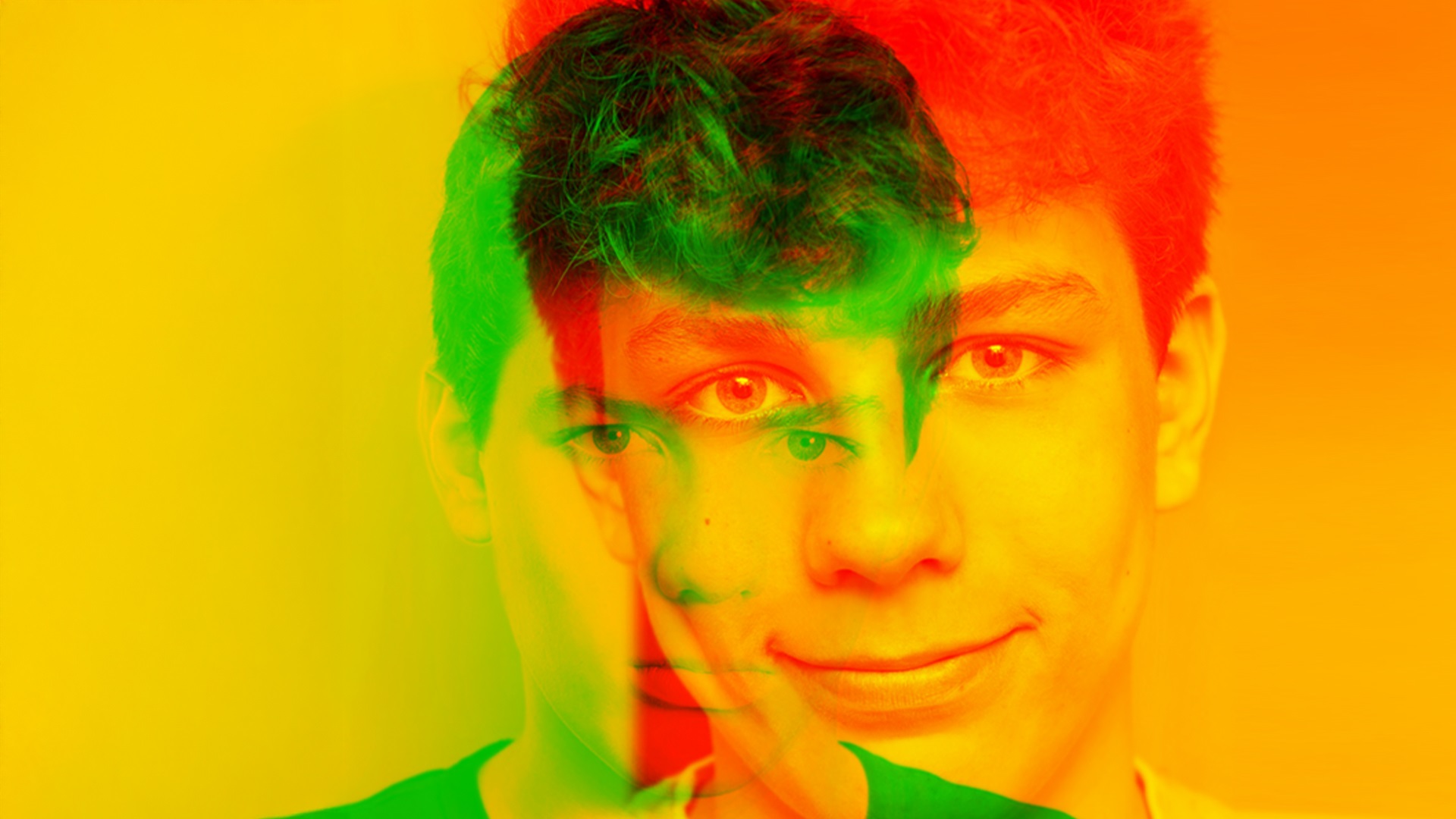
.jpg)

